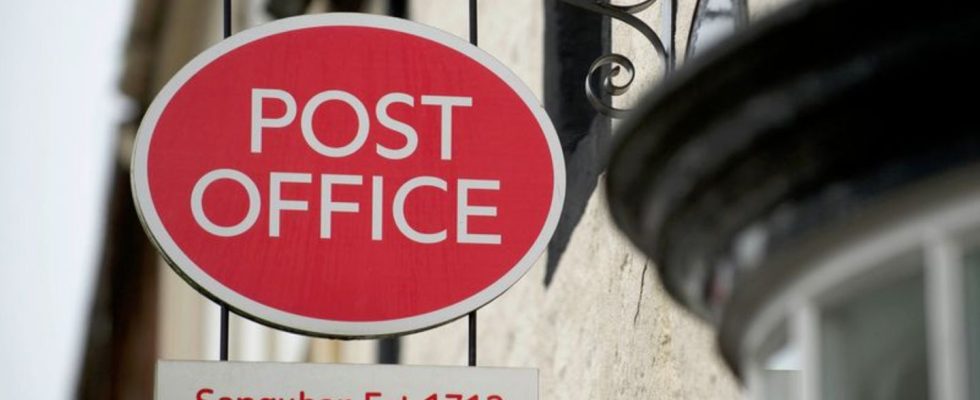reparation
British postal scandal: what happens next?
Hundreds of self-employed branch managers at the former state-owned Post Office were accused of trying to enrich themselves. photo
© Sandy Young/PA Wire/dpa
New attention for one of the biggest British judicial scandals: Hundreds of post office managers were convicted because they allegedly diverted money. Wrongly. The government is taking action.
Britain’s government is involved in one of the country’s biggest judicial scandals Reparations are on the way. Hundreds of post office managers were wrongly convicted on charges of enriching themselves – a computer error was to blame.
“It is an outrageous scandal,” said Prime Minister Rishi Sunak. Lives have been destroyed and people’s reputations have been ruined. New legislation is now intended to overturn the majority of convictions.
That’s what it’s about
A film adaptation on British television brought new attention to the so-called Horizon scandal, which has actually been known for a long time. This involves hundreds of self-employed branch managers of the former state-owned Post Office who were accused of enriching themselves.
More than 700 people were allegedly wrongfully convicted between 1999 and 2015. The scandal robbed many of their financial existence. As it later turned out, errors in Fujitsu’s Horizon IT system were responsible for incorrect billing.
A company representative apologized to those affected and their families in parliament a few weeks ago. So far only some of the judgments have been overturned. The government now wants to overturn convictions of those affected in England and Wales. The legislation still has to go through Parliament.
Criticism of compensation payments and the government
Observers had also criticized that the previous compensation payments were too low and that not all those affected were taken into account. People whose convictions are overturned should now be able to receive 600,000 pounds (703,000 euros) without taking further legal action. Anyone who was not convicted but still suffered losses should be able to receive £75,000. Anyone who received less in a comparison should have their sum increased.
The Law Society warned that the case should not be used as a precedent for government interference in the independent judiciary. “Extraordinary action like this can only be justified by exceptional circumstances,” Nick Emmerson of the Law Society told the PA news agency.
It should not justify further government intervention. Scotland’s Justice Minister Angela Constance criticized the fact that the requirements for overturning convictions do not automatically apply in her part of the country.

